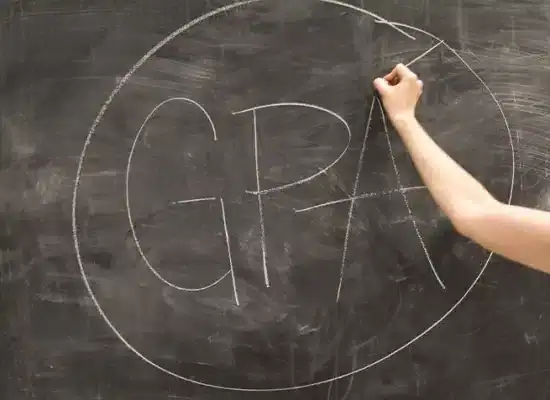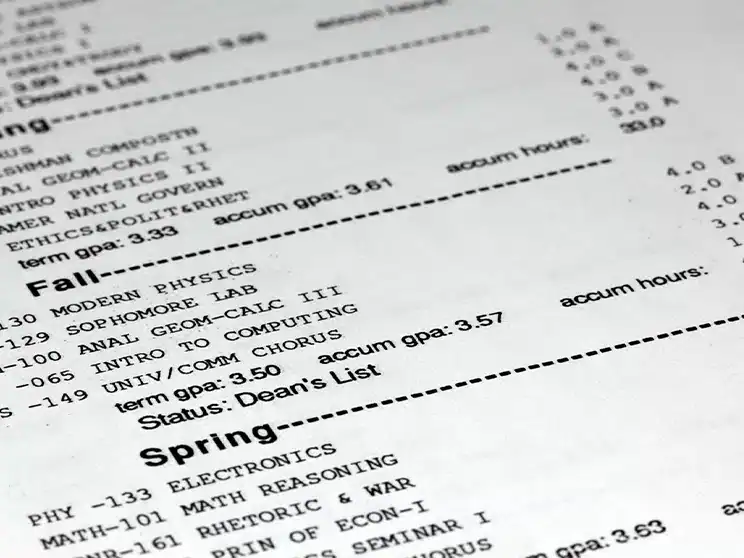Do Employers Care About GPA? Your Questions Answered!
Updated: June 19, 2024

Do employers care about GPA? In high school, everyone knew their GPA mattered: it was an important part of your college application. You couldn’t get into your dream college if you didn’t hit the books and work hard.
As a general rule of thumb, no, interviewers do not care about your GPA. If you made it to the interview they were satisfied with your GPA and the qualifications you listed on your resume. At the interview, you should try to talk about your less tangible skills and qualifications, and your non-academic experiences that explain why you are the right fit for the job.
If you are planning to go on to graduate school or some type of professional post-college study program, such as business or medical school, it makes sense that your GPA would be considered in your application.
However, if you are hoping that college is your last step toward embarking on your career, does GPA matter? Do employers care about GPA, or do they just care that you managed to graduate with that all-important four-year college degree?
Some employers care about GPA
The fact of the matter is, some employers use GPA as a screening tool for entry-level jobs. They won’t even offer an interview if your GPA isn’t high enough. Entry-level jobs in popular fields such as banking, business, accounting, and pharmaceuticals are the employers most likely to use GPA as a screening tool because they get a lot of applicants.
When a recent college graduate is seeking an entry-level job, the only tool the employer has to judge the skills of the applicant is their college transcript. For example, let’s say your class has 40 accounting majors, and you all took the same courses and applied to the same jobs. If your GPA is only average or lower than most of your classmates, it is unlikely they will consider your application seriously. The average college GPA is 3.1, so if your GPA is higher than that, you are above average and will stand out to employers.
If you have mitigating circumstances that explain why your GPA is a bit low, such as you worked full-time to pay your tuition or suffered a personal disaster during college, you should explain that in your cover letter and hope you make it to the interview. Unfortunately, many employers nowadays screen resumes with automatic tools, and no one will even look at the cover letter if your resume doesn’t meet the GPA cut-off.
A high GPA generally means a person is hard-working, goal-oriented, and detail-oriented, characteristics that tend to lead to good job performance. However, some people who thrive in a structured academic environment do not do well in a less structured office environment, and vice versus. There is no direct correlation between GPA and job performance.
Strategies during college
Some people suggest carefully selecting electives that you feel you will do well in to “boost” your GPA. Others scoff at this idea and state that college is for learning; you should select electives in areas you know nothing about in order to expand your horizons.
Another strategy to boost your GPA is to switch to pass-fail when you are struggling with a particular class. If you pass, you will get credit for the course, but your anticipated low grade won’t affect your GPA.
In some fields, recruiters start looking for candidates for entry-level positions among third-year students. They may offer fourth-year internships to outstanding third-year students. Doing well in an internship during your last year of college will almost certainly land you the job regardless of your final college GPA; thus, some experts suggest taking all of the easier courses during your first years in college and pushing off the harder ones to the last year. This will pad your GPA and attract those recruiters during the third year.
Scholarships
If you have a scholarship paying for some or all of your education, you may be required to maintain a certain GPA in order to keep the scholarship. For example, many athletic scholarships require a 2.0 GPA, and some academic scholarships require a 3.6 GPA.
In most US schools, classes are given a letter grade. The letter grade is converted to a number: A=4.0, B=3.0, C=2.0, D=1.0. Then, all of your grade scores are added together and divided by the number of classes that you took. There are many flaws with this system. For example, some college classes are graded pass/fail and can’t be incorporated into your GPA. Some college classes are graded on a strict curve, and even if you master the material you are unlikely to get an A. Some college classes are much harder than other classes, and getting a C in these classes is something to be proud of, but this doesn’t get incorporated into your final GPA.
GPA on your resume: yes or no?
In some fields, yes. In some fields, having a low GPA means you start off with a low salary and despite your good performance on the job you may never catch up to the income of your fellow classmate who started with a high GPA and a correspondingly high salary. However, in other fields, all entry-level jobs start at the same salary.
Check the job listing carefully. Some may specifically require that you provide your GPA, in which case you have no choice. If the job listing does not specifically ask for it, only include it if you are proud of it. Your resume isn’t intended to be a complete description of your life; it is supposed to highlight your triumphs and valuable job skills and experiences.
If you lie about your GPA on your resume and land a job, and your employer finds out, you will be fired immediately. It is very easy for an employer to check your GPA: they just ask your college for your transcript to confirm you actually graduated and did the work you claimed you did. Not all employers will actually check, but some do. Don’t risk it. If you get fired from your first entry-level job for lying, word will get around in the industry.
In summary
Clearly, it is better to know that your GPA matters before you start college and then you can plan to work hard to maintain a high GPA. If you are in college and are already struggling with a low GPA, one strategy is to transfer to a different school and redo some of your coursework. Since you already took classes in those subjects, your grades should be much better the second time around. When you graduate from your new college, your final GPA will be impressive.
If this plan appeals to you, why not try UoPeople, a tuition-free accredited online university? You can hear more about it at this TED Talk.



